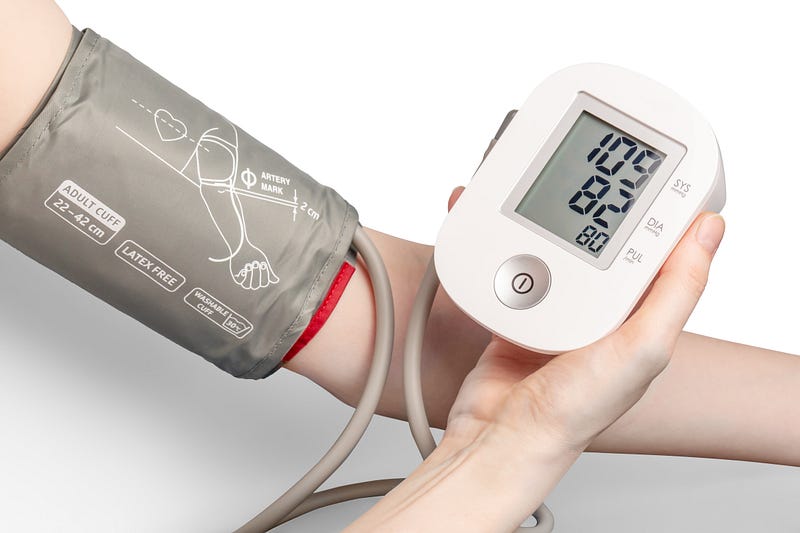Your heart is one of the most important organs in your body. It is crucial to keep it in tip-top shape with diet, exercise, and other lifestyle choices. But did you know that certain vitamins and supplements may also help boost your heart function?
While a nutritious diet should serve as the foundation, supplements can provide an added support layer. Read on to learn about the top supplements for improving cardiovascular health.
Take control of your blood sugar and improve your health with top-quality supplements made in FDA-approved facilities. Push yourself harder and feel your best today! Click the link to learn more
Omega-3 Fatty Acids
Omega-3s are a type of polyunsaturated fatty acid renowned for their heart benefits. They are found abundantly in fatty fish like salmon and sardines. Omega-3 supplements, usually fish or krill oil capsules, are another great source.
These essential fats may:
- Lower blood triglycerides to reduce the risk of atherosclerosis (clogged arteries)
- Decrease inflammation throughout the body and blood vessels
- Reduce the risk of erratic heart rhythms or arrhythmias
- Slow the buildup of plaque in arteries
- Slightly lower blood pressure levels
The American Heart Association endorses omega-3 supplements for heart health, especially for those with high triglycerides. For optimal impact, aim for 1000–2000mg of combined EPA and DHA omega-3s per day.
Coenzyme Q10
CoQ10 is an antioxidant naturally produced by the body that aids energy production in cells. CoQ10 levels deplete with age, making supplementation increasingly important.
Studies link sufficient CoQ10 intake with:
- Improved heart pumping ability and performance
- Decreased risk of heart failure and mortality
- Faster recovery after bypass/heart surgeries
- Mildly lower blood pressure
- Protection against statin medication side effects
Those with heart failure or on statins are most likely to benefit from CoQ10 supplementation. Aim for at least 100–200mg daily under medical guidance.
Vitamin D
Known as the “sunshine vitamin,” vitamin D is important for bone health. However emerging research shows it also impacts heart function.
Vitamin D may help by:
- Reducing inflammation is thought to contribute to heart disease
- Lowering blood pressure
- Improving endothelial cell function for better blood flow
- Balancing cholesterol levels
- Preventing arterial calcification and stiffness
To reap these benefits, maintain vitamin D blood levels above 30 ng/ml through safe sun exposure, fortified foods, and supplements. Most adults need 1000–4000 IU of vitamin D per day. Have your doctor check your levels.
Magnesium
Magnesium is a crucial mineral for nerve, muscle, and heart function. Unfortunately, many adults fall short in their magnesium intake.
Getting enough magnesium may help:
- Regulate heart rhythm to prevent arrhythmias
- Relax blood vessels and arteries
- Lower blood pressure levels
- Reduce arterial plaque and calcification
- Improve blood flow and oxygen delivery
Food sources high in magnesium include dark leafy greens, nuts, seeds, beans, and whole grains. Supplements may provide 200–400mg of elemental magnesium per day.
B Complex Vitamins
The B complex includes essential vitamins like B6, B12, folic acid, and B9. Research shows that adequate B vitamin status benefits the heart in various ways.
These important B vitamins may:
- Lower levels of homocysteine, an amino acid tied to heart disease
- Reduce inflammation within blood vessels
- Improve abnormal cholesterol levels
- Regulate blood pressure
- Prevent blood clots
Get B vitamins from meat, dairy, leafy greens, beans, citrus fruits, and fortified grains. Those with deficiencies may supplement carefully with guidance.
Take control of your blood sugar and improve your health with top-quality supplements made in FDA-approved facilities. Push yourself harder and feel your best today! Click the link to learn more
Garlic Extract
Garlic provides antimicrobial, anti-inflammatory, and antioxidant effects — all of which support cardiovascular wellness. Garlic supplements retain these benefits in concentrated form.
Studies show garlic extract can:
- Inhibit platelet aggregation to prevent blood clotting
- Relax stiffened arteries and improve elasticity
- Reduce cholesterol buildup in arteries
- Lower elevated blood pressure
- Scavenge free radicals that damage blood vessels
Look for aged garlic extract supplements with consistent dosing. Most provide 600–1200mg of garlic extract per day in divided doses.
L-Citrulline
L-citrulline is an amino acid the body converts into L-arginine, which drives nitric oxide production. This effect relaxes blood vessels for better circulation.
Research indicates that L-citrulline may:
- Widen constricted arteries in long-term
- Lower blood pressure significantly
- Improve performance in those with heart failure
- Reduce the thickness of plaque in arteries
Typical dosing of L-citrulline supplements for heart health is 3–6 grams daily. Effects seem most pronounced in older adults.
Conclusion
A nutritious diet forms the basis of heart health. However, evidence suggests certain supplements can provide additional benefits for your ticker. Always consult your doctor before beginning any new regimen.
With your physician’s guidance, supplements like omega-3s, CoQ10, vitamins D and B, garlic, and L-citrulline may help boost cardiovascular function. Combined with heart-healthy lifestyle choices, these small additions could make a big difference!

🌟 Discover the EMAY Portable ECG Monitor and effortlessly track your ECG and heart rate anywhere, anytime. Get a fantastic 60% off on this amazing device today! Don’t miss out, click here to learn more



Post a Comment
0Comments